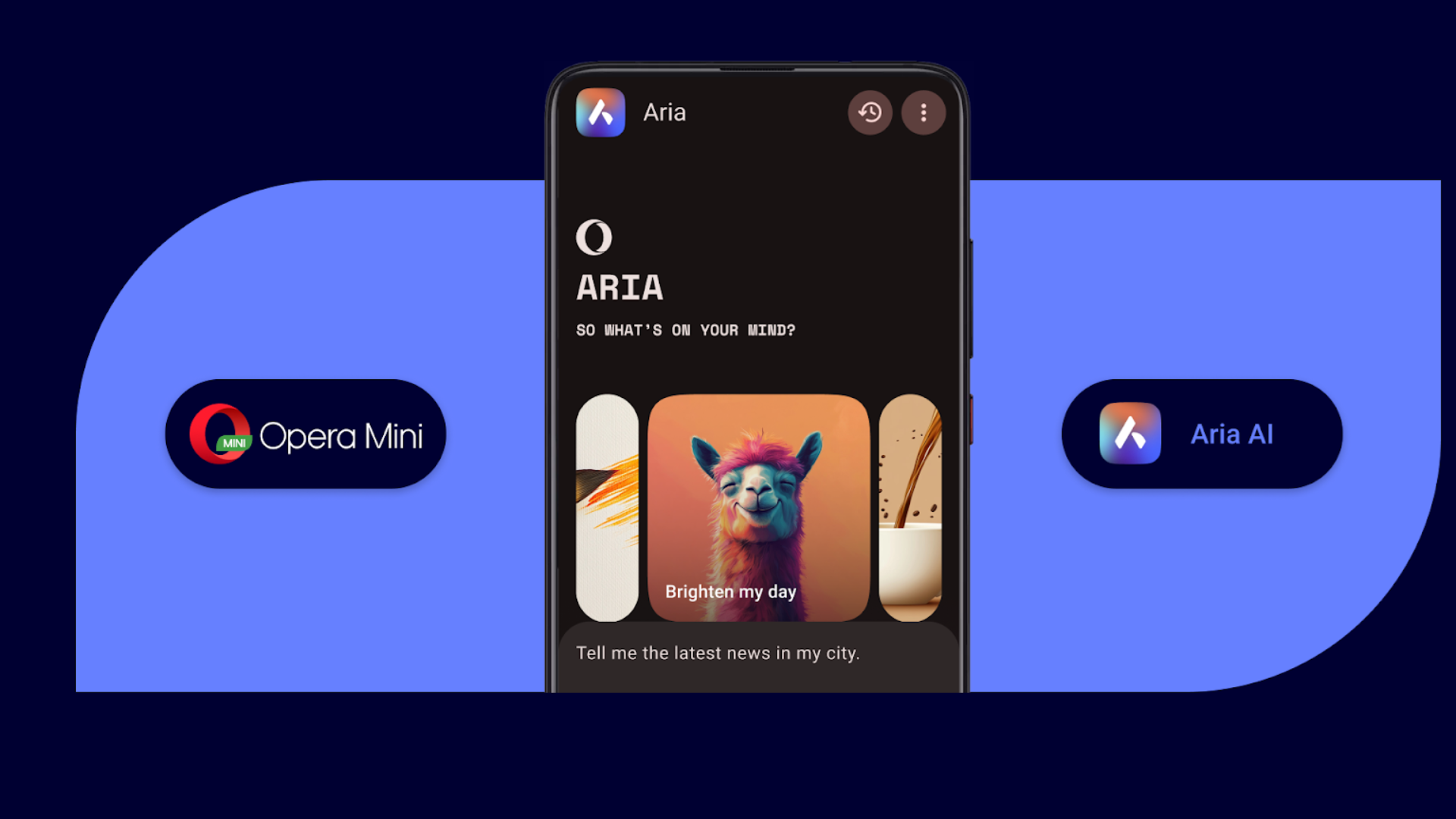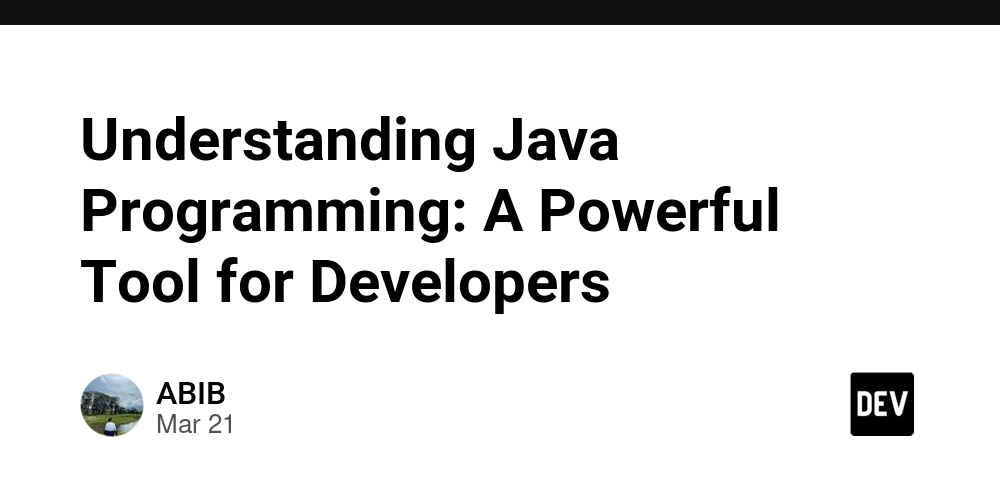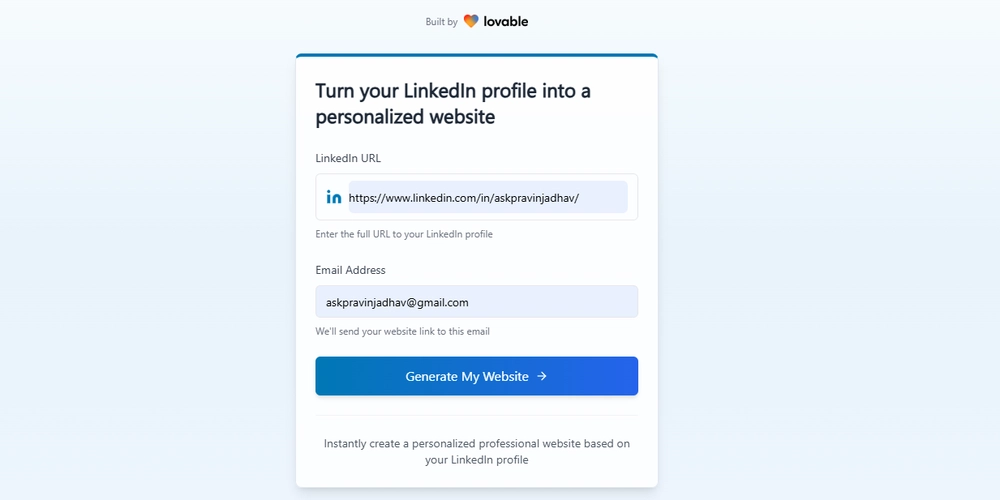The Downsides of Apache License 2.0: Why I Never Use It and Prefer Alternatives Like OCTL
Abstract In this post, we explore the controversial drawbacks of the Apache License 2.0—from its incompatibility with older GPL versions and cumbersome documentation requirements to problematic patent clauses and the lack of automated contributor license agreements. Drawing from personal anecdotes and industry insights, we compare these issues with the innovative features of the Open Compensation Token License (OCTL). With blockchain technology playing a growing role in open source software, OCTL promises flexible licensing, automated tracking, and fair compensation for developers. This blog post covers the background of these licensing models, their real-world applications, the challenges they face, and where the future of open source licensing is headed. Whether you are a seasoned developer or new to open source, read on to discover why many have turned away from Apache License 2.0 and embraced alternatives like OCTL. Introduction Open source licensing is at the heart of modern software development. As developers contribute and collaborate on projects that power critical systems—such as Kubernetes and the Apache HTTP Server—the choice of license plays a vital role in determining how software can be used, modified, and redistributed. Although Apache License 2.0 enjoys popularity due to its permissive nature, many developers have discovered significant drawbacks in areas such as GPL incompatibility, heavy documentation requirements, precarious patent clauses, and open source compensation issues. In this post, we discuss why I personally have abandoned Apache License 2.0 and now favor alternatives like the Open Compensation Token License (OCTL). We dive into the core technical and legal challenges of Apache License 2.0, compare it with OCTL’s blockchain-driven model, and explore what these trends signal for the evolution of open source licensing. Background and Context Before diving into the details, it is important to understand the history and purpose of these licenses. A Brief History Apache License 2.0: Initially designed to provide a permissive licensing model that supports both open collaboration and commercial use, Apache License 2.0 has powered many projects. However, over time, developers have encountered issues, particularly with compatibility with stubby older versions of the GNU General Public License (GPL). GPL and Apache Compatibility: While GPL v3 has been updated to work alongside Apache License 2.0, older versions like GPL v2 are less forgiving. This GPL incompatibility creates challenges for projects that integrate multiple licensing models. OCTL and Blockchain Licensing Models: OCTL represents a modern approach. It leverages blockchain and NFT technologies to automate licensing tasks, track contributions, and ensure fair compensation for developers. This innovation directly addresses shortcomings inherent in the Apache model, such as manual documentation and rigid legal clauses. Ecosystem Context The open source ecosystem is vast and dynamic. Developers must navigate various licensing requirements while juggling contributions, community trust, and corporate partnerships. Platforms such as GitHub have seen millions of repositories where licensing issues affect collaboration and even project survival. With the rise of blockchain—a technology that emphasizes transparency and automation—the conversation is shifting towards models like OCTL that offer a more flexible and secure licensing framework. Core Concepts and Features Let’s break down the primary issues with Apache License 2.0 while comparing them directly with the offerings of OCTL. 1. GPL Incompatibility Issue with Apache: Apache License 2.0’s patent termination clause, among other legal stipulations, causes a mismatch when mixing Apache-licensed code with software under older GPL licenses. This conflict can lead to legal headaches and require extensive code relabeling or license changes. OCTL Advantage: OCTL uses smart contracts on the blockchain to mediate licensing relationships. Developers can seamlessly combine code from different sources, as the blockchain infrastructure smooths over compatibility issues, making integrations hassle-free. 2. Patent Clauses and Legal Risk Issue with Apache: Apache’s patent termination clause (“in terrorem” clause) is designed to deter patent lawsuits. However, it may inadvertently limit a developer’s ability to defend their work when facing legal challenges. OCTL Advantage: With OCTL, patent rights are managed through NFTs and automated contracts. This adds a layer of transparency and enforceability to patent rights, significantly reducing legal ambiguity. 3. Documentation Requirements Issue with Apache: Apache License 2.0 mandates extensive documentation, including full license texts and detailed change logs. For many developers, especially those working on small projects or sta
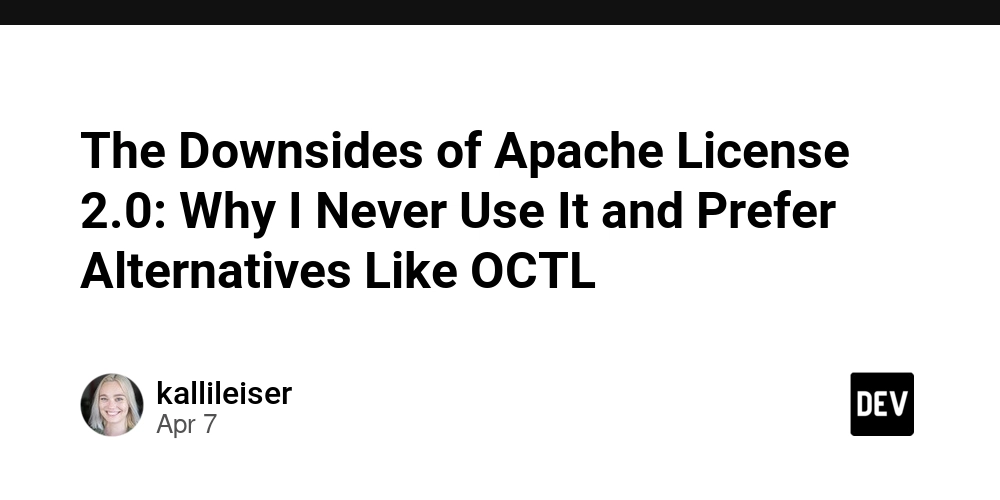
Abstract
In this post, we explore the controversial drawbacks of the Apache License 2.0—from its incompatibility with older GPL versions and cumbersome documentation requirements to problematic patent clauses and the lack of automated contributor license agreements. Drawing from personal anecdotes and industry insights, we compare these issues with the innovative features of the Open Compensation Token License (OCTL). With blockchain technology playing a growing role in open source software, OCTL promises flexible licensing, automated tracking, and fair compensation for developers. This blog post covers the background of these licensing models, their real-world applications, the challenges they face, and where the future of open source licensing is headed. Whether you are a seasoned developer or new to open source, read on to discover why many have turned away from Apache License 2.0 and embraced alternatives like OCTL.
Introduction
Open source licensing is at the heart of modern software development. As developers contribute and collaborate on projects that power critical systems—such as Kubernetes and the Apache HTTP Server—the choice of license plays a vital role in determining how software can be used, modified, and redistributed. Although Apache License 2.0 enjoys popularity due to its permissive nature, many developers have discovered significant drawbacks in areas such as GPL incompatibility, heavy documentation requirements, precarious patent clauses, and open source compensation issues.
In this post, we discuss why I personally have abandoned Apache License 2.0 and now favor alternatives like the Open Compensation Token License (OCTL). We dive into the core technical and legal challenges of Apache License 2.0, compare it with OCTL’s blockchain-driven model, and explore what these trends signal for the evolution of open source licensing.
Background and Context
Before diving into the details, it is important to understand the history and purpose of these licenses.
A Brief History
Apache License 2.0:
Initially designed to provide a permissive licensing model that supports both open collaboration and commercial use, Apache License 2.0 has powered many projects. However, over time, developers have encountered issues, particularly with compatibility with stubby older versions of the GNU General Public License (GPL).GPL and Apache Compatibility:
While GPL v3 has been updated to work alongside Apache License 2.0, older versions like GPL v2 are less forgiving. This GPL incompatibility creates challenges for projects that integrate multiple licensing models.OCTL and Blockchain Licensing Models:
OCTL represents a modern approach. It leverages blockchain and NFT technologies to automate licensing tasks, track contributions, and ensure fair compensation for developers. This innovation directly addresses shortcomings inherent in the Apache model, such as manual documentation and rigid legal clauses.
Ecosystem Context
The open source ecosystem is vast and dynamic. Developers must navigate various licensing requirements while juggling contributions, community trust, and corporate partnerships. Platforms such as GitHub have seen millions of repositories where licensing issues affect collaboration and even project survival. With the rise of blockchain—a technology that emphasizes transparency and automation—the conversation is shifting towards models like OCTL that offer a more flexible and secure licensing framework.
Core Concepts and Features
Let’s break down the primary issues with Apache License 2.0 while comparing them directly with the offerings of OCTL.
1. GPL Incompatibility
Issue with Apache:
Apache License 2.0’s patent termination clause, among other legal stipulations, causes a mismatch when mixing Apache-licensed code with software under older GPL licenses. This conflict can lead to legal headaches and require extensive code relabeling or license changes.
OCTL Advantage:
OCTL uses smart contracts on the blockchain to mediate licensing relationships. Developers can seamlessly combine code from different sources, as the blockchain infrastructure smooths over compatibility issues, making integrations hassle-free.
2. Patent Clauses and Legal Risk
Issue with Apache:
Apache’s patent termination clause (“in terrorem” clause) is designed to deter patent lawsuits. However, it may inadvertently limit a developer’s ability to defend their work when facing legal challenges.
OCTL Advantage:
With OCTL, patent rights are managed through NFTs and automated contracts. This adds a layer of transparency and enforceability to patent rights, significantly reducing legal ambiguity.
3. Documentation Requirements
Issue with Apache:
Apache License 2.0 mandates extensive documentation, including full license texts and detailed change logs. For many developers, especially those working on small projects or startups, this requirement can become a time-consuming burden.
OCTL Advantage:
By harnessing blockchain technology, OCTL automates documentation. Every contribution is logged via smart contracts—improving efficiency and eliminating the tedious paperwork required by Apache.
4. Contributor License Agreements (CLAs)
Issue with Apache:
Apache projects might not enforce CLAs strictly. This oversight can result in legal complications when contributors submit code without proper clearance from their employers or prior commitments.
OCTL Advantage:
OCTL integrates automated, blockchain-powered CLAs ensuring that each contribution is pre-verified. This process helps maintain clear ownership and rights for all contributions, reducing legal risks and disputes.
5. Open Source Compensation
Issue with Apache:
One major drawback of Apache’s permissiveness is the “free rider” problem. Developers often contribute significant time and effort without receiving compensation when larger companies capitalize on open source software.
OCTL Advantage:
OCTL’s model uses royalty-bearing NFTs to track usage and automatically compensate developers when their code is deployed commercially. This fair compensation model not only motivates contributions but also fosters sustainable open source development.
Comparison Table: Apache License 2.0 vs. OCTL
| Feature | Apache License 2.0 | OCTL |
|---|---|---|
| GPL Compatibility | Limited compatibility with older GPL versions | Seamless integration via blockchain smart contracts |
| Patent Clause | Inflexible, with potential legal risks | Transparent, automated patent rights managed via NFTs |
| Documentation Requirements | Mandatory, burdensome manual updates | Automated logging of changes on the blockchain |
| Contributor Agreements | Optional CLAs, increasing legal risk | Ironclad, automated CLAs ensuring clear rights distribution |
| Open Source Compensation | No direct compensation model | Royalty-bearing tokens offer fair, automatic compensation for developers |
Applications and Use Cases
Use Case 1: Machine Learning Projects
Imagine you are building a machine learning application using TensorFlow. You rely on various open-source libraries; however, one of them is Apache licensed and another is under GPL v2. The incompatibility forces you to make major adjustments unless you choose a licensing model that can mediate these differences like OCTL. With OCTL, licensing conflicts become a solved problem, allowing you to focus on innovation rather than legal compliance.
Use Case 2: Startup Development and Fast Iteration
For startups, time is of the essence. A team might build a prototype quickly using Apache-licensed components. However, as the project scales, updating documentation and fulfilling Apache’s legal requirements may slow development. OCTL’s automated documentation and smart contracts can significantly reduce overhead and allow startups to iterate faster while ensuring clear intellectual property rights.
Use Case 3: Open Source Projects with Heavy Commercial Use
Large enterprises often integrate open source code into their commercial products. With Apache’s permissive model, companies can profit without ensuring that the original developers receive any financial benefit—a classic “free rider” situation. OCTL directly addresses this by ensuring that when a commercial entity uses the open source code, blockchain-based royalties are triggered, providing developers with fair compensation.
Challenges and Limitations
No system is without challenges. Let’s analyze some potential obstacles even for newer models like OCTL.
Adoption Resistance:
Switching from a long-established licensing model like Apache 2.0 to a blockchain-based model such as OCTL may encounter resistance from organizations used to traditional legal frameworks. Many developers are familiar with Apache and GPL licenses, and retraining or educating the broader community about blockchain software licensing requires concerted effort.Technical Complexity:
Integrating blockchain technology into licensing means developers must understand new technical paradigms, including smart contracts, NFTs, and token-based compensation. This increased technical overhead may deter some teams from adopting OCTL immediately.Regulatory and Legal Uncertainty:
While blockchain offers transparency, its legal standing in different jurisdictions is still evolving. Some legal experts question whether smart contracts will be recognized the same way as traditional legal agreements internationally. Organizations must weigh these uncertainties when considering new licensing models.Interoperability with Existing Tools:
Many current open source tools, development pipelines, and community practices are built around the legacy of licenses like Apache. Ensuring that blockchain licensing can integrate with existing systems is an ongoing development challenge.
Bullet List: Key Limitations to Address
- Learning curve for blockchain technology
- Resistance from established open source communities
- Legal acceptance across diverse jurisdictions
- Integration challenges with legacy systems
Future Outlook and Innovations
Despite these challenges, the future of open source licensing is poised for significant transformation:
Growth of Blockchain in Licensing:
Blockchain’s role in managing intellectual property is expanding. As legal frameworks become more comfortable with smart contracts, blockchain-based licensing models like OCTL are expected to gain broader acceptance.Convergence of Legal and Technical Models:
Future licensing models may bridge the gap between traditional legal practices and distributed ledger technology. We might see hybrid models that integrate the best features of Apache License 2.0 with automated, blockchain-driven elements.Enhanced Contributor Ecosystems:
As crowdfunding and patronage platforms evolve (see Gitcoin’s evolution), developers are increasingly able to fund projects directly. OCTL’s transparent, monotonic compensation mechanism is likely to serve as a catalyst for innovative funding models in open source.Increased Fairness and Sustainability:
The concept of fair compensation is driving industry discussions on the long-term sustainability of open source projects. With mechanisms that automatically reward every contribution, we can expect a shift toward more equitable and resilient open source ecosystems.Collaboration with Traditional Licensing:
It is also possible that traditional licenses could evolve to better integrate with emerging blockchain technologies, resulting in licenses that offer both the legal clarity of Apache 2.0 and the innovative benefits of blockchain-based agreements.
For more insights on the evolving landscape, check out discussions on Open Source Developer Compensation and A New Era in Open Source Licensing.
Summary
In summary, while Apache License 2.0 has been a cornerstone in open source, its limitations have prompted many developers to explore alternative models such as OCTL. The incompatibility with older GPL versions, burdensome documentation requirements, stringent patent clauses, and lack of focus on developer compensation all contribute to the challenges of Apache licensing. In contrast, OCTL leverages blockchain technology to automate compliance, ensure fair compensation through royalty-bearing NFTs, and simplify legal processes via smart contracts.
The table below encapsulates the contrast between Apache 2.0 and OCTL:
| Aspect | Apache License 2.0 | OCTL |
|---|---|---|
| Compatibility | Limited with older GPL licenses | Seamless, blockchain-mediated integration |
| Patent Management | Rigid, potentially restrictive | Transparent and enforceable via NFTs and smart contracts |
| Documentation/CLA | Requires manual update and maintenance | Automated tracking and verification |
| Contribution Compensation | No direct compensation mechanism | Automatic, royalty-bearing token rewards |
The longtail keywords such as Apache License disadvantages, OCTL vs Apache, open source compensation, contributor license agreements, and blockchain software licensing play an important role in understanding these issues. By addressing these keywords, developers can better grasp why traditional licensing might hinder innovation—and how new blockchain-based models can offer a more sustainable future.
To further explore the debate behind these licensing models, you may also want to read the original article on The Downsides of Apache License 2.0: Why I Never Use It and Prefer Alternatives Like OCTL. Additionally, check out resources on the evolution of blockchain licensing on License Token’s website and on Gitcoin’s platform.
Final Thoughts
The landscape of open source licensing is undergoing rapid change. Traditional licenses, while historically significant, often fall short in accommodating the complex modern needs of interoperability and fair compensation. In this evolving technological environment, licenses like OCTL represent a forward-thinking solution by addressing inherent flaws in Apache License 2.0 with blockchain-driven innovations.
Whether you are managing a startup, contributing to large-scale projects, or simply passionate about ensuring fair rewards for open source contributions, understanding these licensing models is crucial to navigating the future of software development. Embracing innovative models like OCTL may not only streamline your development process but spark a broader shift toward a more equitable open source ecosystem.
Key Points to Remember:
- Apache License 2.0 has significant drawbacks in terms of GPL compatibility, legal ambiguities, documentation burdens, and compensation issues.
- OCTL offers automated compliance, sophisticated patent management, streamlined documentation, and fair compensation systems through blockchain technology.
- The future of open source may involve hybrid models combining traditional legal clarity with blockchain innovations.
As we witness these changes, it is critical to stay informed about both legal and technical advancements. Developers should consider their project needs carefully and choose licensing models that not only protect their rights but also promote innovation and sustainability in the open source community.
Happy coding, and may your contributions be fairly recognized and rewarded!
Further reading and related links:
- Apache License 2.0 Text
- GPL v3 License
- MIT License
- OCTL Whitepaper
- Arbitrum and Open Source License Compatibility
- License Token Empowering Open Source Creators
For additional perspectives on modern open source licensing and compensation models, check out related posts on Dev.to such as Unveiling a New Era in Open Source Licensing and insights on The Drip Network Guide.
This comprehensive overview should equip you with the necessary insights to navigate open source licensing challenges, making it easier to choose between Apache License 2.0 and cutting-edge alternatives like OCTL. Enjoy the journey towards a more sustainable and equitable open source future!




























![[Webinar] AI Is Already Inside Your SaaS Stack — Learn How to Prevent the Next Silent Breach](https://blogger.googleusercontent.com/img/b/R29vZ2xl/AVvXsEiOWn65wd33dg2uO99NrtKbpYLfcepwOLidQDMls0HXKlA91k6HURluRA4WXgJRAZldEe1VReMQZyyYt1PgnoAn5JPpILsWlXIzmrBSs_TBoyPwO7hZrWouBg2-O3mdeoeSGY-l9_bsZB7vbpKjTSvG93zNytjxgTaMPqo9iq9Z5pGa05CJOs9uXpwHFT4/s1600/ai-cyber.jpg?#)














































































































































![[The AI Show Episode 144]: ChatGPT’s New Memory, Shopify CEO’s Leaked “AI First” Memo, Google Cloud Next Releases, o3 and o4-mini Coming Soon & Llama 4’s Rocky Launch](https://www.marketingaiinstitute.com/hubfs/ep%20144%20cover.png)

















































































































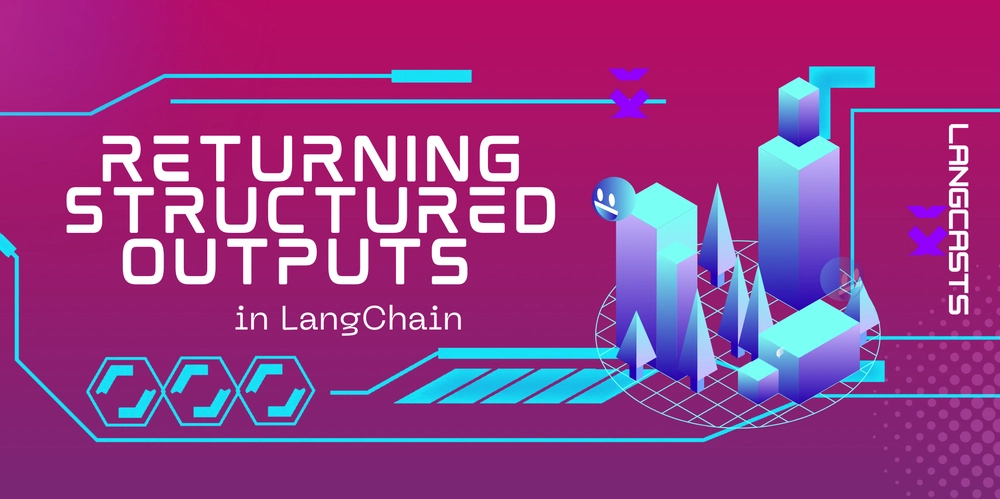



















































































![Rogue Company Elite tier list of best characters [April 2025]](https://media.pocketgamer.com/artwork/na-33136-1657102075/rogue-company-ios-android-tier-cover.jpg?#)







































































_Andreas_Prott_Alamy.jpg?width=1280&auto=webp&quality=80&disable=upscale#)





































































































![Apple Watch Series 10 Back On Sale for $299! [Lowest Price Ever]](https://www.iclarified.com/images/news/96657/96657/96657-640.jpg)
![EU Postpones Apple App Store Fines Amid Tariff Negotiations [Report]](https://www.iclarified.com/images/news/97068/97068/97068-640.jpg)
![Apple Slips to Fifth in China's Smartphone Market with 9% Decline [Report]](https://www.iclarified.com/images/news/97065/97065/97065-640.jpg)


















